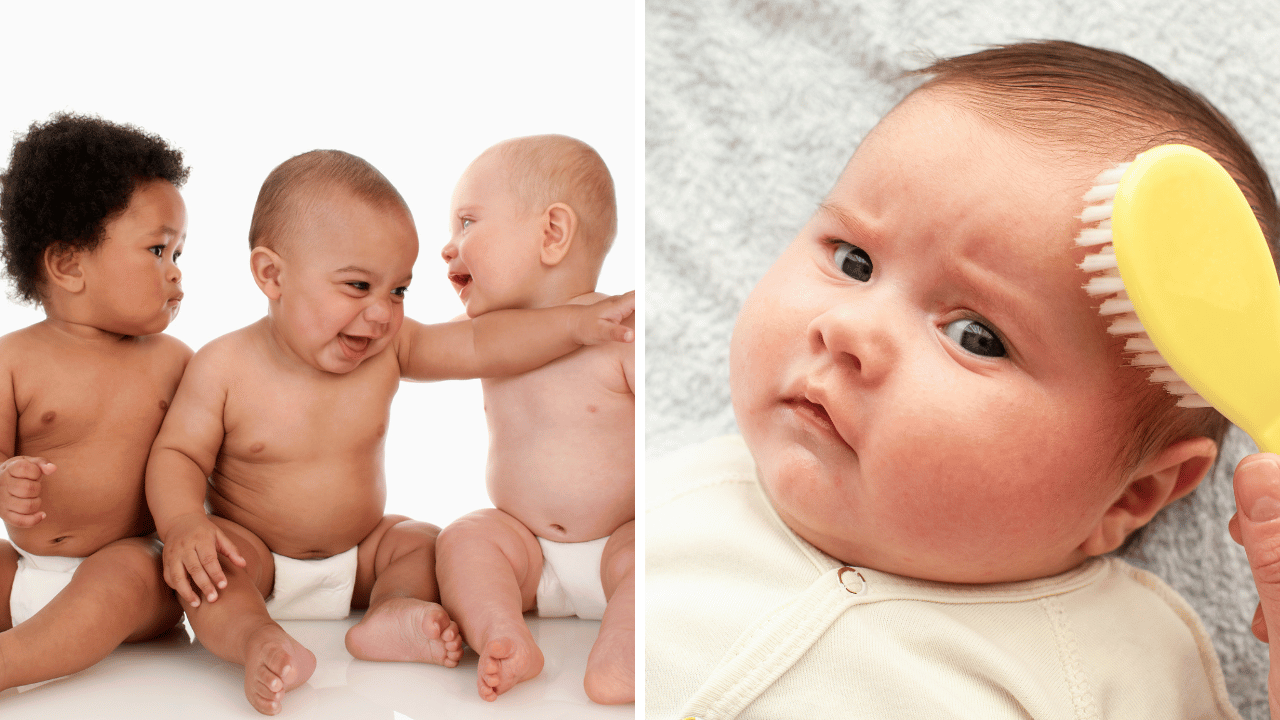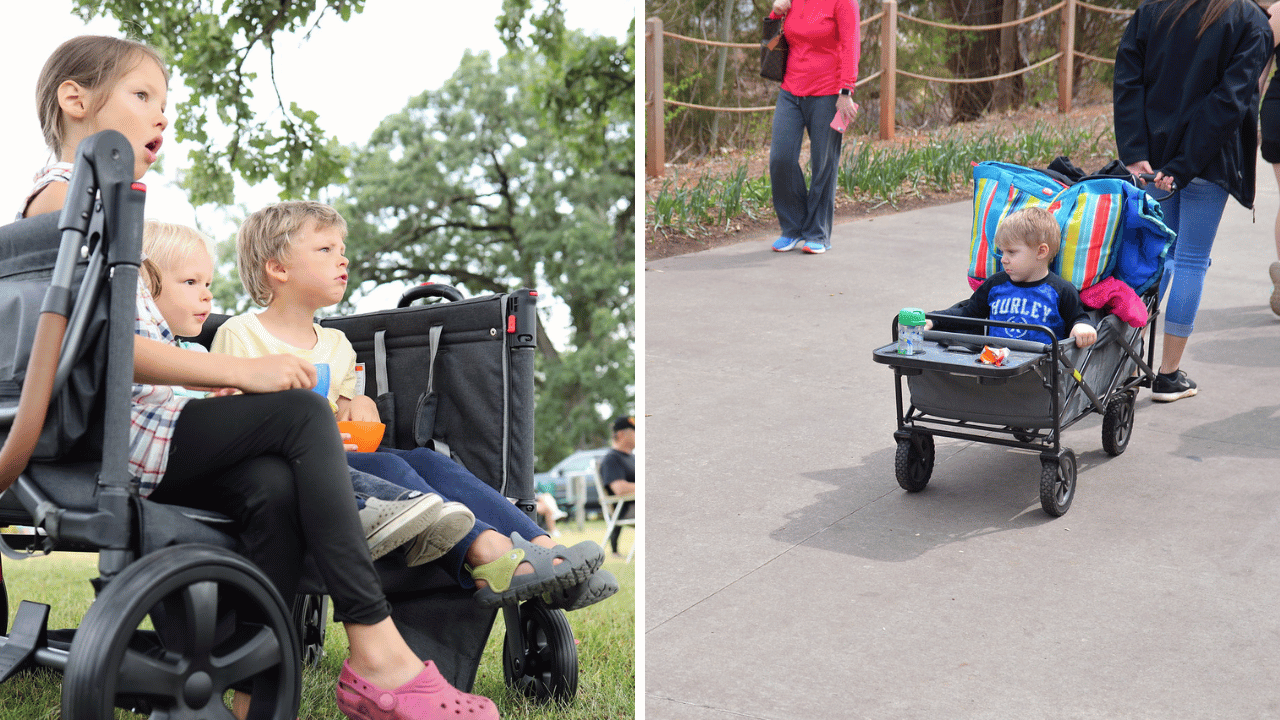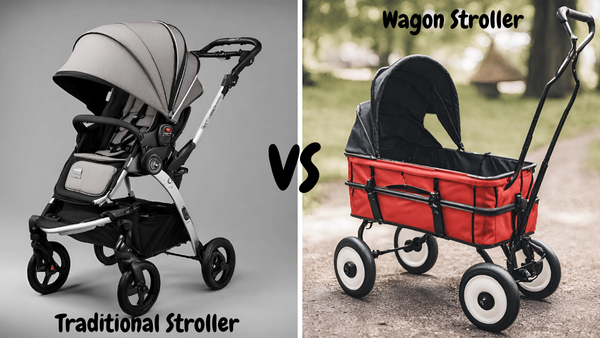As parents, few things can be as challenging as trying to put a baby to sleep. The late-night battles, the endless rocking, and the desperate attempts to get even a few hours of uninterrupted sleep can leave parents feeling exhausted and overwhelmed. One particular challenge that many parents face is when their babies refuse to sleep unless they are held. This phenomenon, often referred to as the "hold me" syndrome, can be frustrating and emotionally draining for both parents and babies alike. In this article, we will explore the challenges parents face when trying to put their babies to sleep and offer practical advice and tips to help overcome this sleep regression.
Whether your baby is happy but just won't stay asleep unless they're being held, or they appear uncomfortable and wake up often throughout the night, there are methods that can help promote better sleep habits and reduce nighttime waking episodes.
In this blog post we'll dig into some of the possible causes as well as practical solutions for getting babies to fall asleep by themselves so both you and your little one can finally get some much needed rest.
The Impact of Sleep Regression on Babies and Parents
Sleep regression, or the sudden disruption of a baby's regular sleep pattern, can have negative effects on both babies and parents. Babies who refuse to sleep unless held may experience difficulty falling asleep on their own, shorter sleep durations, and frequent nighttime awakenings. This can lead to overtiredness, irritability, and poor overall sleep quality for the baby. On the other hand, parents who struggle with getting their babies to sleep without being held may suffer from sleep deprivation, increased stress levels, and a decreased ability to function during the day. It is crucial to address this issue to ensure the well-being of both baby and parent.
Understanding the "Hold Me" Syndrome
The "hold me" syndrome is a common issue faced by parents when trying to put their babies to sleep. Babies become accustomed to the warmth, comfort, and soothing motion of being held, making it difficult for them to transition to sleeping independently in their cribs or bassinets. This dependency on being held can be attributed to various factors, including separation anxiety, a desire for physical closeness, or a need for reassurance and security. Understanding these underlying reasons can help parents develop effective strategies to address the issue.
Emotional Needs
Babies often become attached and dependent on their parents for comfort and security when they are very young. If your baby has formed this kind of bond, they may prefer to be near you during sleep times and can become unsettled or distressed if they are placed in their crib.
Physical Needs
Sometimes babies simply don't feel comfortable sleeping alone - particularly if they still need a lot of physical comfort and contact with you. This could be because the mattress is too firm, or the room is too hot or too cold.
Environment
The environment where your baby sleeps can have an impact on their ability (or desire) to sleep without being held. If they've been used to sleeping in a noisy location, for example, it may be more difficult for them to drift off when you put them down in a quieter environment.
Habits
Finally, some babies have simply become accustomed to sleeping when held and can't fall asleep without it. If this is the case, you can work on forming better sleep habits so your little one can get used to sleeping in their own space.
Diagnose the Cause of Your Baby's Sleep Issues and Create a Plan of Action
To ensure you get to the root cause of your baby's sleep issues, it's important to diagnose them correctly. You should start by making a detailed log of their sleeping habits over the course of several nights and then look for patterns or trends.
Once you've identified potential causes, create an action plan that addresses each one specifically. For example: if your baby is having difficulty settling down due to the environment, you may need to adjust the temperature and noise levels or use a white noise machine. If they're not comfortable on their mattress, try adding an extra blanket or special sleep aid like a weighted blanket.
Establish a Calming Nighttime Routine For Your Baby
Establishing a consistent nighttime routine can be incredibly helpful in helping your baby to fall asleep without needing to be held. Start with something calming like a warm bath or playing soft music and try to wrap up the routine around thirty minutes before bedtime so that your baby has enough time for their body to relax and signal the start of sleep.
You may also want to include a few moments of cuddling and physical contact in the routine as this can help your baby feel secure and relaxed. Once it's time for bed, lay them down in their crib or bassinet and stay with them until they fall asleep.

Teach Your Baby Self-Soothing Techniques Such as Patting Their Back or Humming a Soothing Song
One of the most effective ways to help your baby get used to sleeping in their own space is to teach them self-soothing techniques. This could include patting their back, humming a soothing song or using white noise such as a fan or air purifier. You can practice these techniques during the day when your baby is awake and then use them at night when you lay them down in their crib or bassinet.
You can also start to introduce a transitional object such as a stuffed animal or blanket that your baby can use to comfort themselves during the night. This object should be something familiar and comforting that your little one will recognize when they wake up during the night.

Practical Tips for Overcoming the "Hold Me" Syndrome
Gradual Transition: Start by gradually reducing the amount of time you spend holding your baby to sleep. Begin with shorter periods of holding and slowly increase the distance between you and your baby while they are falling asleep.
Establish a Bedtime Routine: A consistent bedtime routine can signal to your baby that it's time to sleep. Incorporate calming activities such as a warm bath, gentle lullabies, or reading a bedtime story. This routine will help create a soothing environment and prepare your baby for sleep without needing to be held.
Create a Comfortable Sleep Environment: Ensure that your baby's sleep environment is safe, comfortable, and conducive to sleep. Maintain a dimly lit room, use white noise machines to drown out external noises, and invest in a quality crib mattress and bedding. These factors can contribute to a more relaxed and soothing sleeping environment for your baby.
Encourage Self-Soothing Techniques: Teach your baby self-soothing techniques to help them fall asleep independently. Introduce a lovey or comfort object, such as a soft blanket or stuffed animal, that your baby can associate with relaxation and security. Gradually reduce your physical presence during sleep routines, allowing your baby to learn to soothe themselves back to sleep when they wake up during the night.
Consistency is Key: Be consistent with your approach to sleep training. Babies thrive on routine, so maintain a consistent sleep schedule, including regular nap times and bedtime. Consistency helps establish healthy sleep habits and reinforces the message that it is time to sleep independently.
Ensure the Environment is Comfortable - Temperature, Noise Level, and Light Levels Are All Important Factors to Consider
When establishing a comfortable sleep environment, it's important to consider all of the factors that may be affecting your baby's ability (or willingness) to fall asleep.
The temperature should be kept consistent - neither too hot nor too cold - and you should ensure that any sources of light or noise are kept to a minimum. If possible, use blackout curtains in the nursery to reduce light levels and use a white noise machine or fan to keep background noise levels low.
It is essential to ensure your baby's mattress provides optimal comfort. If the mattress feels too firm for them, consider adding an extra blanket or incorporating a specialized sleep aid such as a weighted blanket.

Look for Possible Underlying Medical Conditions That Could be Causing Restless Nights
If your baby is still having difficulty sleeping, it may be worthwhile to look for any underlying medical conditions that could be disrupting their sleep. Common issues include reflux, allergies, and ear infections - all of which can cause discomfort and wakefulness during the night.
It's important to speak to your doctor if you suspect your baby has a medical condition as they can help you find the right treatment or medications to get your baby sleeping better.
Don't Forget to Take Care of Yourself During This Period
Finally, it's important not to forget about taking care of yourself during this period. Caring for a newborn is exhausting and if you don't get enough rest it can be difficult to keep up with the demands of parenting.
Try to make sure you get enough sleep, eat well and take some time for yourself during the day - even if it's just a few moments of peace and quiet! Taking steps to look after yourself will help ensure that you have the energy you need to keep up with your baby's needs.
Having a newborn is an amazing experience, but it can also be a challenging one. With the right strategies and support, however, you'll be able to get your little one sleeping independently in no time.
Baby Won't Sleep Unless Being Held FAQs
Are weighted blankets a good solution for helping babies sleep better?
Weighted blankets are designed to provide extra comfort and pressure, which can be beneficial in helping babies fall asleep. They should always be used with caution and supervision, however, as young children may not be able to remove them if they get too hot or uncomfortable. Additionally, it's important to make sure the weight of the blanket is appropriate for your baby's size and age. If in doubt, speak to your doctor or pediatrician before using a weighted blanket with your baby.
Will my baby still wake up at night?
It's normal for babies to wake up several times during the night as they get used to sleeping independently. This is especially true for newborns as they adjust to sleeping in a new environment. However, if your baby is still waking up several times during the night and you have implemented strategies such as establishing a calming nighttime routine and ensuring their sleep environment is comfortable, then it may be worth speaking to your doctor or pediatrician about possible underlying medical conditions.
What other tips can I use to help my baby sleep better?
Aside from the strategies mentioned above, there are a few other tips that can help promote better sleep habits in babies. These include limiting screen time before bed and avoiding food and drinks close to bedtime as these can cause indigestion and discomfort during the night. Additionally, make sure your baby is getting enough physical activity during the day as this can help them get tired enough to fall asleep by themselves. Finally, if your baby is older than four months, you may want to consider sleep training which involves gradually teaching them how to self-soothe and fall asleep without needing assistance.
Final Thoughts
The challenge of getting babies to sleep without being held can be overwhelming for parents. However, understanding the underlying reasons behind the "hold me" syndrome and implementing practical strategies can help parents overcome this sleep regression. Gradual transitions, consistent bedtime routines, and creating a comfortable sleep environment are essential in encouraging independent sleep. By fostering self-soothing techniques and maintaining consistency, parents can help their babies develop healthy sleep habits, leading to more restful nights for both baby and parent. Remember, getting through this phase requires patience, perseverance, and lots of love and understanding.









